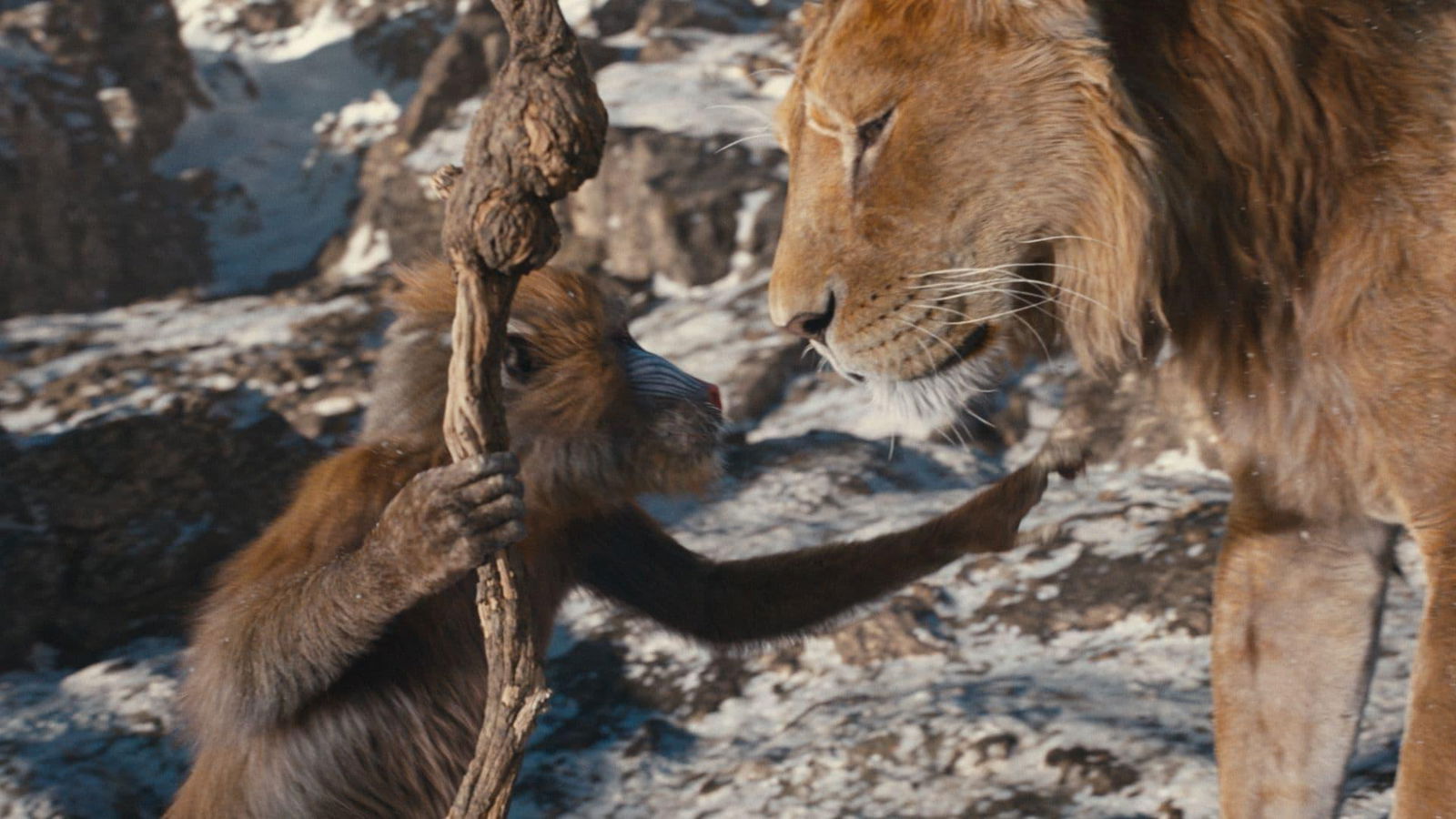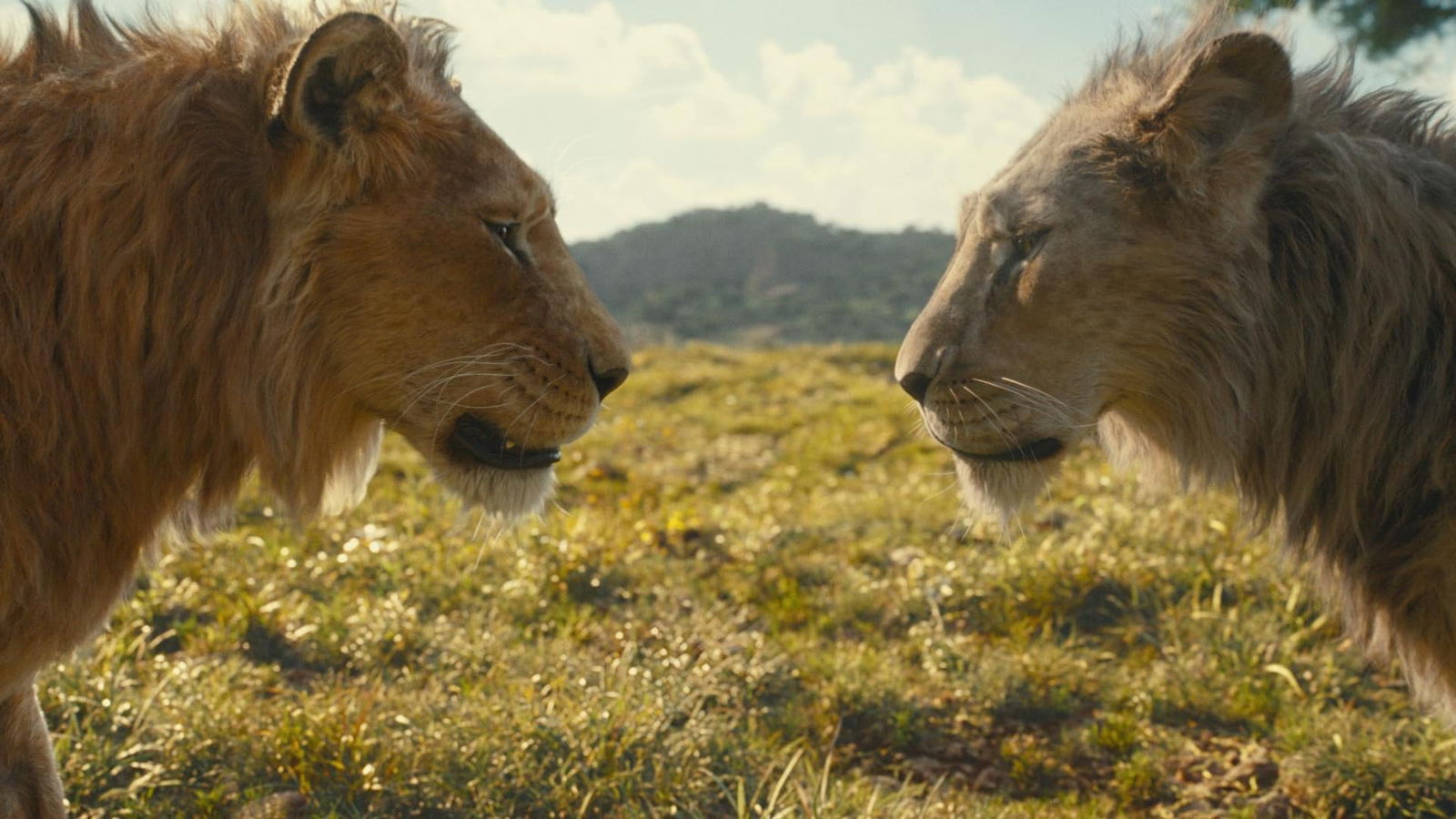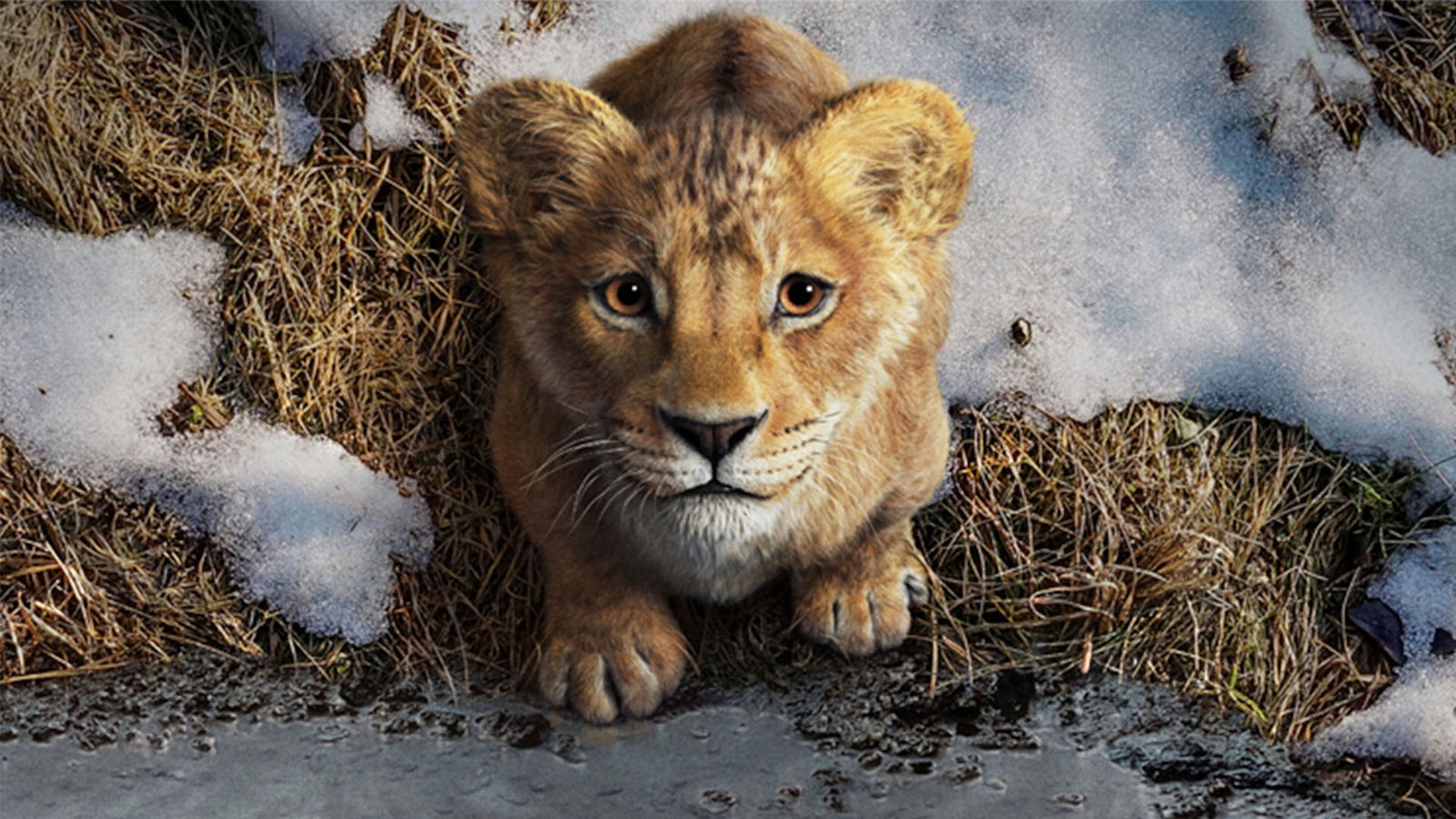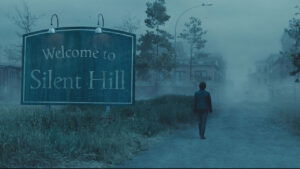The announcement that Barry Jenkins would direct a prequel to Disney’s “live-action” The Lion King remake hit film enthusiast communities like a bombshell. On one hand, Jenkins has established himself as one of the best filmmakers of his generation with deeply human dramas such as Moonlight and If Beale Street Could Talk. On the other hand, the 2019 remake represents the Disney corporate machine at its worst—a soulless, shot-for-shot rehash of a classic, stripped of the life that made the original so beloved. To say I was apprehensive about Mufasa: The Lion King would be an understatement. However, I left the theatre pleasantly surprised by how good the movie turned out to be.
In the film’s opening moments, Simba (Donald Glover) and Nala (Beyoncé Knowles-Carter) have left Pride Rock for an extended period, leaving their daughter Kiara (Blue Ivy Carter) in the care of Timon and Pumbaa. To calm the anxious cub, the wise Rafiki (John Kani) begins recounting the origins of her grandfather, Mufasa (Braelyn Rankins/Aaron Pierre).

As a cub, Mufasa and his parents were in search of the mythical promised land known as Milele. A devastating flood separates Mufasa from his parents, sweeping him into uncharted territory. He is eventually rescued by another cub named Taka (Theo Somolu/Kelvin Harrison Jr.), the young heir to his pride. Taka’s mother, Eshe (Thandiwe Newton), raises Mufasa alongside the lionesses, much to the disapproval of Taka’s father, King Obasi (Lennie James), who views Mufasa as an unwelcome “stray.”
Despite the tension, Mufasa and Taka grow up as close as brothers. However, their lives are forever altered when the pride is decimated by a group of white lions led by their ruthless leader, Kiros (Mads Mikkelsen). Forced to flee, Mufasa and Taka set out to find a new home, embarking on a journey that shapes their destinies.
“To say I was apprehensive about Mufasa: The Lion King would be an understatement.”
Although Barry Jenkins admitted in a Vulture article that taking on Mufasa: The Lion King was more “work for hire” than a passion project, that doesn’t mean he slouched in his direction. Far from it. Everything in Mufasa feels far more dynamic, largely due to the film’s use of colour and stylization, which were missing in its predecessor. Credit is due to the enhanced visual effects. Despite the limitations of working with photo-realistic animation, the lions feel much more expressive and, aside from the lionesses, are easier to distinguish. Jenkins and his frequent collaborator, cinematographer James Laxton, achieve genuinely impressive feats with the camera, including the use of long tracking shots that replace frequent cuts between characters.
One standout moment features Mufasa pausing to sense his surroundings. Even though it’s a fully digital landscape, it feels as natural as a real-life nature documentary, as though filmed on location rather than on a soundstage. Jenkins even incorporates his signature shot—a character gazing directly into the camera—which effectively conveys internal emotions. During chase scenes, the camera locks onto a specific character, evoking the feel of a third-person action game while also recalling the dynamic action sequences from The Adventures of Tintin.

The voice acting is solid across the board. While it’s impossible to match the iconic performance of the late James Earl Jones (to whom the film is dedicated), Aaron Pierre does an admirable job capturing some of the spirit of a young Mufasa. Kelvin Harrison Jr. also delivers a strong performance, particularly in scenes where Taka grapples with his love for his adoptive brother and his loyalty to his father’s teachings.
The songs are another pleasant surprise. While thematically similar to those in the original film, Lin-Manuel Miranda’s tunes are undeniably catchy. “I Always Wanted a Brother” and “We Go Together” stand out as personal favourites. However, the villain song, “Bye Bye,” feels more silly than menacing, undermining its intended impact.
“Mufasa: The Lion King is an unnecessary prequel, but it is also better than its predecessor by a significant margin.”
Where Mufasa falters is in two key areas. The first is the framing device. Although Blue Ivy Carter delivers a decent performance as Kiara, the narrative frequently halts for “comedic” interjections by Timon and Pumbaa. Seth Rogen and Billy Eichner, who weren’t particularly funny in the 2019 film, are even more grating here despite having less screen time. While one joke reminiscent of The Lion King 1½ elicited a chuckle, the rest—a barrage of meta-humour and a revision of “Hakuna Matata”—fell flat.
The second issue lies in Taka’s transformation into Scar. While the audience knows this is inevitable, the progression feels both too predictable and too abrupt. Taka’s jealousy of Mufasa’s natural leadership skills is clear throughout the film, but his full descent into villainy lacks the nuance and impact it requires. Compared to Transformers One, where Megatron’s turn feels more organic and the pivotal moment carries weight, Scar’s arc feels rushed, as though the film scrambled at the last moment to get him there.

Overall, is Mufasa: The Lion King an unnecessary prequel? Yes. Will it make a ton of money? Absolutely. Is it better than its predecessor? By a significant margin. Even if Jenkins returns to crafting intimate dramas, he has proven his ability to deliver quality on a blockbuster scale. Hopefully, next time, it will be with fewer constraints.





